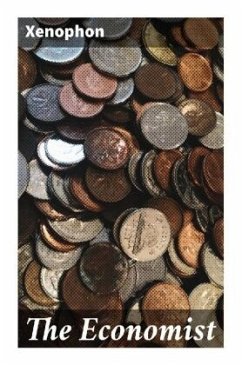
Polite Conversation in Three Dialogues
Versandkostenfrei!
Versandfertig in 6-10 Tagen
7,49 €
inkl. MwSt.
Weitere Ausgaben:

PAYBACK Punkte
4 °P sammeln!
In "Polite Conversation in Three Dialogues," Jonathan Swift offers a satirical examination of social interactions among the English gentry in the early 18th century. The book presents a series of carefully crafted dialogues that expose the pretensions and superficialities of polite society. Employing wit and irony, Swift's literary style reveals not only the absurdities of conversational norms but also critiques the moral vacuity often present in such exchanges. Swift's keen observation of societal norms is enriched by his own background in the political and literary arenas of his time, eviden...
In "Polite Conversation in Three Dialogues," Jonathan Swift offers a satirical examination of social interactions among the English gentry in the early 18th century. The book presents a series of carefully crafted dialogues that expose the pretensions and superficialities of polite society. Employing wit and irony, Swift's literary style reveals not only the absurdities of conversational norms but also critiques the moral vacuity often present in such exchanges. Swift's keen observation of societal norms is enriched by his own background in the political and literary arenas of his time, evident in the nuanced layers of humor and critique woven throughout the text. Jonathan Swift, an influential figure of the Augustan age, was a master satirist known for his keen social commentary and literary innovation. His experiences as a clergyman and a public servant, coupled with personal frustrations with the politeness and hypocrisy he witnessed in society, informed his approach to writing "Polite Conversation." Swift's deep understanding of human nature and societal dynamics comes through as he dissects the artifice of social engagements, creating a mirror for his readers to examine their own interactions. This book is essential for those interested in the interplay of social norms and satire. Readers will find Swift's work not only a historical document but also a timeless reflection on the complexities of human communication. "Polite Conversation" challenges us to critically assess the substance of our interactions and the often unspoken rules that guide them, making it a thought-provoking read for anyone drawn to the nuances of language and society.













